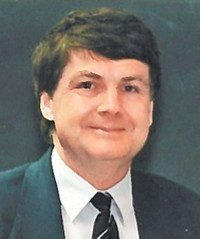Advertisement
Grab your lab coat. Let's get started
Welcome!
Welcome!
Create an account below to get 6 C&EN articles per month, receive newsletters and more - all free.
It seems this is your first time logging in online. Please enter the following information to continue.
As an ACS member you automatically get access to this site. All we need is few more details to create your reading experience.
Not you? Sign in with a different account.
Not you? Sign in with a different account.
ERROR 1
ERROR 1
ERROR 2
ERROR 2
ERROR 2
ERROR 2
ERROR 2
Password and Confirm password must match.
If you have an ACS member number, please enter it here so we can link this account to your membership. (optional)
ERROR 2
ACS values your privacy. By submitting your information, you are gaining access to C&EN and subscribing to our weekly newsletter. We use the information you provide to make your reading experience better, and we will never sell your data to third party members.
Environment
Grad School Stress
December 7, 2015
| A version of this story appeared in
Volume 93, Issue 48
Nov. 16, page 7: A News of the Week story misidentified the title of Kuo-Hsi Cheng. He is general manager of ScinoPharm (Changshu) Pharmaceuticals in China, not vice president of operations at ScinoPharm Taiwan, its parent company.
Nov. 16, page 39: In the obituary notice for Derek Horton, his wife, June, was incorrectly identified as a survivor. She preceded him in death.
The article “Managing Grad School Stress” by Linda Wang was most welcome (C&EN, Sept. 14, page 59). In 45 years as a student, postdoc, and faculty member, I have seen almost all graduate students stressed at some point.
The article omitted an important group of people who in many cases act as psychologists, counselors, and relief valves: support staff, especially secretaries and administrative assistants. Frequently going beyond their job descriptions, they provide perspective, sympathy, and a human touch that students sometimes feel is lacking from some faculty. I know of at least one Ph.D. chemist who spent so much time doing counseling instead of chemistry in a central lab facility that she changed careers to social work.
While not always recognized for their contributions to graduate training, these supporting players are beloved by the students and essential in these increasingly stressful times.
Alexander Scheeline
Urbana, Ill.
Wang’s excellent article on managing grad school stress cut close to the bone for me. While I was a doctoral student at the University of California, Berkeley, in the late 1950s, one fellow student did, in fact, kill himself. I, too, might have gone that route, or at least dropped out of the program, had it not been for the intervention of two perceptive and sympathetic faculty members: my formal research director, professor Isadore Perlman, and my de facto research mentor, professor Robert Connick.
Evan Appelman
State College, Pa.
I read your article on managing graduate school stress with great interest as it provoked recollections of my own experiences in the early 1980s. One paragraph in particular suggested that advisers are not blameless, but why? Could this be a result of their own experiences that, in most cases, have not been punctuated by life in a nonacademic environment?
When I started my first job at a pharmaceutical company, it took me several weeks, if not months, to become accustomed to the concept of a weekend, let alone an evening. Testimony of graduates whom I hired, years later, would sometimes include tales of adviser-originated phrases like, “If I’m here from 8 AM until 10 PM seven days a week, then you should be too,” “Don’t waste precious research seconds,” and “Why on Earth would you want to take a day off [to spend time with your spouse, partner, family, etc.]?”
It was always far more impressive to see a person who achieved outcomes and managed their time efficiently, rather than one who prided himself or herself on sheer physical presence in the lab or office. Time management and life balance can be taught, but it is best taught by example lest those less experienced in both have nothing by which to measure their achievements in such skills.
Young academics striving for tenure are in their own (sometimes self-made) pressure cookers, may have had no training themselves in a more realistic environment, and could benefit greatly from learning by some of the examples described in the article. Overall, moderation in all things (including moderation—sometimes, but not always, the extra effort is essential, just not continuously) would seem to be the best policy!
James T. Palmer
Templestowe, Australia



Join the conversation
Contact the reporter
Submit a Letter to the Editor for publication
Engage with us on Twitter